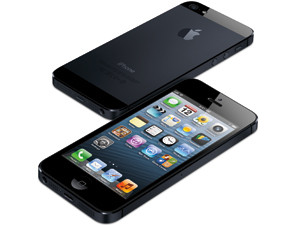
While Samsung still dominates as the top global smartphone brand, Apple has managed to claw back to the top of the US smartphone market on the back of strong initial iPhone 5 sales.
This is according to data from Kantar Worldpanel (KWP) ComTech, which says iOS currently has a 48.1% share of smartphone sales, while Android has 46.7%. The last time Apple overtook Android in the US was after the release of the iPhone 4S - it retained the lead for three consecutive periods.
"This time we predict that Apple will beat its previous high of 49.3% and achieve its highest ever share of the US smartphone market within the next two periods," says global consumer insight director at KWP ComTech, Dominic Sunnebo.
Despite its lead in the important US market, Apple is still trailing behind Android in Europe. Android strongholds include Germany (73.9% of the market) and Spain (81.7%). The Samsung Galaxy S3 is said to account for close to a quarter of smartphone sales in Germany.
"However, [Apple] is now enjoying share gains in four of the five major European countries with a particularly strong performance in Britain where it holds a 32.7% share," says the research firm. Android's combined share of the top five European markets is currently at 64% (up from 51% last year), while Apple's share has gone up from 20% to 21% overall in those regions.
Loyalty
Earlier this month, Strategy Analytics reported that the Galaxy S3 had overtaken the iPhone 4S to become the bestselling smartphone globally in the third quarter. A total of 18 million Galaxy S3 units were shipped in the quarter worldwide, compared to the 16.2 million iPhone 4S handsets. The research firm did, however, add that the S3's lead is likely to be short-lived, and iPhone 4S sales declined in the third quarter as consumers held off for the iPhone 5.
According to Sunnebo, 62% of iPhone 5 sales in the US are attributed to existing Apple customers upgrading their devices. Thirteen percent of US iPhone 5 sales were to consumers switching from Android, while 6% were those switching from BlackBerry.
"Apple has always managed to maintain loyalty levels far above the competition, and this has clearly played a part in driving sales of its new device. An impressive 92% of existing Apple owners in the US said they will choose an iPhone the next time they upgrade," says Sunnebo.
Corporate step up
The iPhone is also making strides in the corporate space, according to a new IDC report on the use of smartphones in the enterprise.
The research firm forecasts that iPhones and Android smartphones will overtake BlackBerry as the top smartphone used by enterprise employees by year-end. Businesses are said to be purchasing iPhones "in droves", while Android-based devices top the smartphones purchased directly by workers themselves.
IDC expects that in total for 2012, consumer shipments of Android smartphones will reach 351.9 million, while 'employee liable' (those bought by workers) shipments will be 87.7 million and "corporate liable" (bought by companies) shipments will total 15.1 million. Apple is expected to ship a total of 78.6 million iPhones to consumers, 37.1 million to workers, and 31.1 million to companies. Combined, Apple and Android corporate liable shipments will outpace Research In Motion for the first time.
The IDC says the iPhone will top the "corporate liable" smartphone shipment list through 2016, when it is expected to reach 68.9 million shipments. In 2011, BlackBerry led in the corporate space with 22.4 million shipments.
According to the IDC, while BlackBerry is still the "gold standard" for security, reduced interest from consumers and developers is hindering the brand's viability in the long-term. RIM is aiming to turn this around with the release of the new BlackBerry 10 platform and a refreshed line-up of devices.
Share